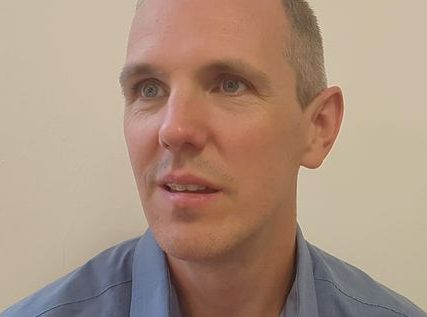
Your Voice: Collaborating across national borders to grow legacy giving
September 18, 2019
Special Focus: What today’s philanthropists really want
September 18, 2019Lena Vizy, legacy programme manager at Amnesty International NL, asks what fundraisers can do to convince senior management to invest (or invest more) in legacy fundraising?
Legacy giving has become an increasingly important income stream for many non-profits, but it’s not always easy for fundraisers to convince boards, directors or senior management that legacies should be a priority for the organisation. Why is that? What exactly are the barriers and what can we do to tear them down?
To the best of my knowledge, there are two main problems:
Prioritising immediate returns over long-term investment – often fundraisers who lobby for investment in their legacy plans, highlighting impressively high long-term returns, are turned down by senior managers who are looking to see a more immediate gain. Fundraisers too can sacrifice their own strategic plans for legacy fundraising to more current issues and projects, instead of prioritising long-term success.
Discomfort talking about legacy giving – senior managers and directors still often feel uncomfortable about legacy fundraising, with the vague idea that such ‘delicate’ conversations will mean speaking with supporters about death. If people feel uncertain or insecure about what and how to have a conversation on legacy giving, it can be a significant barrier. It’s important that we take this seriously and educate our colleagues about the positive nature of legacy fundraising conversations and how they can help strengthen relationships with supporters.
How can we overcome these barriers? After discussing this with my former colleague Adam Buckles, who is now working as head of legacies at the Alzheimer’s Society, we have pulled together some practical tips.
These boil down to three essential factors for successfully convincing your senior management to invest more in legacies:
Build understanding and knowledge about legacy giving
Changing the perspective on legacy fundraising starts with listening and you are the one that has to listen first. Ask your senior management about what kind of barriers, threats or risks they see concerning legacy fundraising. What do you and your organisation need to be aware of before starting to communicate about legacy giving? By listening to them you know what you have to focus on first and what kind of information you have to provide to successfully start convincing them.
It’s important not to stop with the senior management but to open up the conversation on legacy giving with your colleagues. One of the key indicators for a successful legacy programme is that it is recognised and understood across the organisation, so much so that it becomes part of the organisation’s culture. Your aim is to help the board and management to succeed and to make your organisation feel positive and excited about legacy giving.
Adam emphasises that in the beginning it is always about context. You need to know what you’re aiming for with your legacy programme and then to translate it to each of your audience groups, helping them to understand its importance. It can be a donor, board member or direct colleague that you want to convince about legacy giving. How can you put legacy giving into context for them?
The results: analysing, forecasting and reporting (regularly)
It’s crystal clear that legacy fundraising is about results. Every good manager will ask you for a business plan to substantiate any extra investment.
For a lot of fundraisers, especially when starting out with legacies this can feel complicated. Of course, you can’t predict the exact income for the future, but if you know the average legacy income in your country and of your organisation, the size of your database and average age of your supporters, you can give an indication of legacy potential. Always keep in mind that if you start investing today, initial results will be expected over several years.
If your senior management is very focused on short-term return, it is important that you have a conversation regarding what can be done today to make tomorrow and all the other tomorrows more successful for your organisation. In this conversation you can also use recent research on expected legacy income and demonstrate successes from other NGOs that have already invested in legacy fundraising.
The long-term investment can feel vague to your manager and, because of that, it’s important to regularly and consistently report tangible results, such as a prospect pipeline, legacy leads and identified pledgers, as well as the estimated value they represent. Define those success factors and the key steps that you will put in motion together with your boss, making him or her co-owner of the legacy plan.
As with any new fundraising idea or request for budget, Adam’s advice is to always test. Testing feels less risky for managers and the results help to illustrate the potential return.
The person behind the numbers
Results are important, but to fully convince your management about the importance and necessity of legacy fundraising, you have to show the person behind the numbers. To make managers and directors feel deeply positive about legacy giving you have to make them realise that legacy giving is all about life, the donors’ values, memories, dreams, ambitions and aims. By giving your managers and colleagues the chance to meet the pledgers, listen to their stories and discovering that those people are often our most loyal, well-informed and committed supporters, you can change their perspective. This is often the best cure for any insecurity or discomfort around legacies and helps them support you as a partner in growing the legacy giving programme.
Personal stories of pledgers are regularly used to communicate legacy giving externally to donors, but Adam also emphasises how crucial they are for internal support. His tip is to look for key figures within the organisation. Is there a colleague, old board member or for example a much appreciated volunteer that has named your organisation in his or her will? Make that person a legacy ambassador and ask them if they are willing to share their story and motivation with the organisation.
Do you want to learn more about legacy fundraising and build or fine tune your organisation’s legacy programme? Join my legacy fundraising masterclass and workshop at IFC 2019.
I want to thank Adam Buckles for sharing his knowledge on legacy fundraising insights and being such an inspirational and supportive colleague over the years.
About Lena Vizy
Lena is the legacy programme manager at Amnesty International Netherlands, where she successfully set up and managed Amnesty Netherlands’ first legacy programme with an ambitious, multi-year legacy strategy. Next to that she worked with Amnesty Portugal, where she provided vision and direction in legacy fundraising and built a suitable legacy programme. Lena joined Amnesty International in 2013. Prior to this she worked in Germany and the Netherlands as a marketing manager, mainly in the cultural sector.




